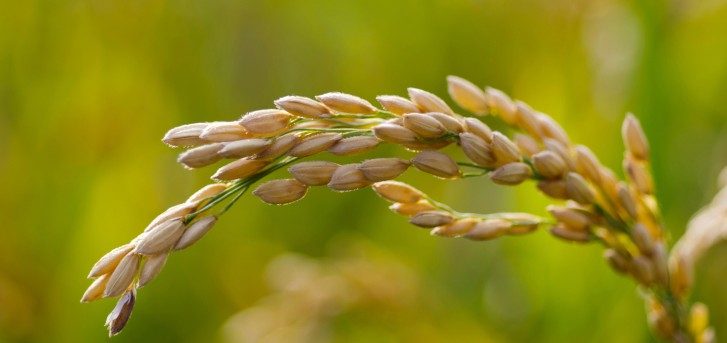The University of Nottingham
 Exchange online
Exchange online
Research Exchange
Waste rice crops provide promise for sustainable fuels of the future

Scientists from The University of Nottingham have received vital funding to create new biofuels which will address the urgent need to find alternatives to fossil fuels.
Researchers from the University and the International Centre for Genetic Engineering and Biotechnology will collaborate to engineer enzymes, bacteria and bioconversion processes that will help to produce advanced biofuels from waste rice straw.
The project, led by Professor Nigel Minton and Dr Syed Shams Yazdani, will receive £1.4M from the Biotechnology and Biological Sciences Research council (BBSRC) in the UK, with matched resources from the Department of Biotechnology (DBT) in India. The research is part of a major international research project.
Professor Nigel Minton said: “Rice is the third biggest crop grown in the world and the major staple crop for most tropical nations. Rice straw, left over from rice harvests in large quantities, doesn’t have many agricultural uses and so hundreds of millions of tons is burned to dispose of it each year. This is wasteful and polluting, particularly if rice straw could be used to create biofuels.”
The team hope to use synthetic biology to design bacterial strains capable of converting the straw into biofuel, after they have develop an enzyme cocktail optimised for deconstructing rice straw into the necessary raw materials for biofuel production.
Sir Mark Walport, the Government Chief Scientific Adviser, announced the major funding towards sustainable fuels, during a visit to India on 13 November. Over £4m of UK funding, with matched resource from India, has been awarded to four research projects, including The University of Nottingham, that bring together expertise in sustainable bioenergy and biofuels from both countries.
The funding is a result of the Sustainable Bioenergy and Biofuels (SuBB) initiative funded by the BBSRC in the UK and the DBT in India. The initiative encouraged researchers to apply for funding for cross-disciplinary projects that underpin the generation and implementation of sustainable, advanced, bioenergy in order to address the urgent need to find alternatives to fossil fuels.
Leave a Reply
Other

Top prize for quantum physicist
A University of Nottingham physicist has won a prestigious medal from the Institute of Physics for […]

Zero carbon HOUSE designed and built by students comes home
Design and construct a low cost, zero carbon, family starter home, transport it to Spain, build […]